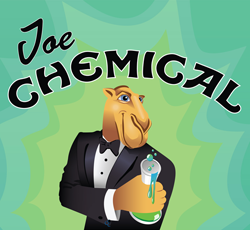 Is it unfair to compare the chemical industry in 2012 to the tobacco industry in the 1990’s? Is it too harsh to suggest that we’ve migrated from Joe Camel to “Joe Chemical”?
Is it unfair to compare the chemical industry in 2012 to the tobacco industry in the 1990’s? Is it too harsh to suggest that we’ve migrated from Joe Camel to “Joe Chemical”?
Read the Chicago Tribune’s recent series, Playing with Fire, and decide for yourself. Nicholas Kristof called it “superb journalism” and we agree.
The series documents a decades-long campaign to deliberately misrepresent the science around the effectiveness of flame retardants in order to win government mandates requiring the chemicals to be in furniture and other products. It describes similar distortions of the science demonstrating adverse health impacts of the chemicals themselves; the creation of front groups to enforce the industry’s will with vicious political attacks; and extorting support from other businesses by threatening them with rigged videos showing their products bursting into flames. And underpinning all of it: the ongoing regulatory failure that allowed it to happen in the first place.
The series has important lessons for federal policymakers considering an overhaul the Toxic Substances Control Act (TSCA), and for state policymakers considering legislation of their own until meaningful reform of TSCA is enacted. The Safe Chemicals Act, introduced by Senator Lautenberg and co-sponsored by 21 Senators, would address all of the major gaps in current law, including the flawed system for reviewing new chemicals that the Tribune documents in some detail. You can read more about the Safe Chemicals Act here.
But the bigger lesson from the series may be the lack of integrity in this industry more broadly, especially when it comes to policy and science matters. And that has implications beyond the Safe Chemicals Act. For the three companies directly implicated in the series are all members in good standing of the American Chemistry Council (ACC). The former CEO of one of them, Albemarle, even chaired the board-level committee overseeing ACC strategy for federal reform as late as 2011.
The ACC has a trademarked code of ethics, transparency and performance, called Responsible Care, adherence to which they claim is mandatory for all members. I wrote to ACC’s President, Cal Dooley, asking him to expel these members for violating the code or dispute the Tribune’s findings in detail. He declined to do either, and said the companies will be defending themselves. Twenty-one state legislators who were the direct targets of these tactics then made a similar request, and got a similar response. In fact, the same day it issued this response, ACC announced that Albemarle’s new CEO was elected to a three-year term on ACC’s Board of Directors.
Well that’s not going to cut it. This industry has waved Responsible Care in the face of anyone calling for increased oversight of chemicals for 25 years. Even now, the ACC is insisting that it stands for sound science and transparency – even as it demands that the Congressionally-mandated Report on Carcinogens of the National Toxicology Program be suspended for having the audacity to tell the truth about two of the industry’s cash cows, formaldehyde and styrene.
Large companies like Dow, DuPont, BASF and ExxonMobil have made strong claims that their own standards for chemical safety are rigorous and the only problem is a lack of public confidence. So why are they utterly silent now? What do they have to say about these deceptive practices? Why do they refuse to come to the table and help create a new federal oversight system?
Until they do we’ve got two words for them: Joe Chemical.



